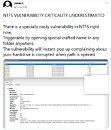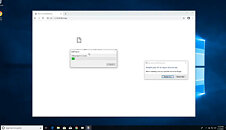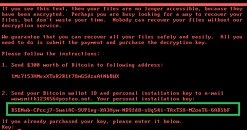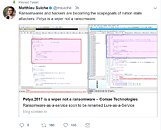
Critical Flaw in Windows 10 Could Corrupt Your Hard Drive
Windows OS security is taken seriously, as the OS is wide-spread across millions of PCs around the world, however, there may be issues where OS has some security flaw that is found by external researchers. Due to the sheer code base of the new OS like Windows 10, there are a plethora of bugs and security flaws waiting to get discovered by someone. And today, thanks to the team of cybersecurity researchers, we have found out that in Windows 10 file-system called NTFS, there is a bug that corrupts your hard drive by simply triggering a specific variable name in a file.
If the end-user inside Windows 10 tries to access the NTFS attribute called "$i30" in a specific way, the flaw is exploited. The NTFS search index attribute, specifically the string "$i30", is containing a list of files and subfolders in a directory, and there is even a log of deleted files and folders. After running a specific command inside the command line (CMD) or inside the browser, Windows will start to display warnings of "File or directory is corrupted and cannot be read". After that, the OS will prompt a user to restart the machine and repair the damaged drive, so the Windows disk check utility will start. Once corrupted, Windows 10 will start displaying a notification indicating that the main file table (MFT) on the particular disk is corrupted and thus can not operate. Starting from the build Windows 10 Build 1803 the OS is vulnerable until the current version and a possible fix is expected to be released soon.
If the end-user inside Windows 10 tries to access the NTFS attribute called "$i30" in a specific way, the flaw is exploited. The NTFS search index attribute, specifically the string "$i30", is containing a list of files and subfolders in a directory, and there is even a log of deleted files and folders. After running a specific command inside the command line (CMD) or inside the browser, Windows will start to display warnings of "File or directory is corrupted and cannot be read". After that, the OS will prompt a user to restart the machine and repair the damaged drive, so the Windows disk check utility will start. Once corrupted, Windows 10 will start displaying a notification indicating that the main file table (MFT) on the particular disk is corrupted and thus can not operate. Starting from the build Windows 10 Build 1803 the OS is vulnerable until the current version and a possible fix is expected to be released soon.



